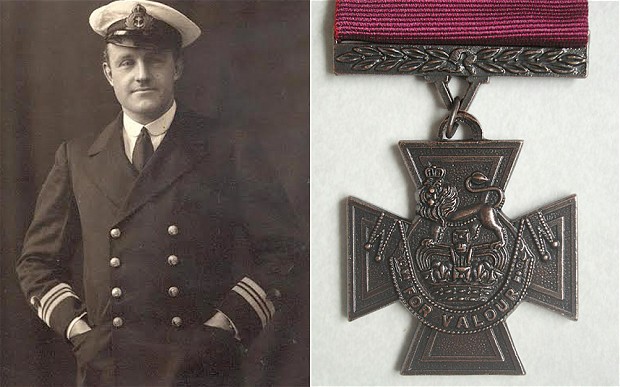
Friday, February 14th, marked the centenary of Arthur Harrison’s debut for his country. Stuart Lancaster’s credo will know his name. The name adorns an award that is bestowed among themselves for the finest defensive display in each match. But, the record of valor which makes him the only English rugby player to win the Victoria Cross. That underpins the head coach’s wishes to fortify a sense of national identity.
Harrison was a Lieutenant Commander on the HMS Vindictive. He had been believed to be dead when he was hit by the first fires from the opposing side. He was brought below deck with a shattered jaw. He amazed his doctors and his crew-mates when he reappeared on deck. Harrison went on to lead the landing party. During this act of gallantry that would later earn him the VC, he mobilized an attack. He would die amid the chaos, along with two of his men. Alfred Carpenter was the captain of the Vindictive and would later recall that “Harrison’s charge down the narrow gangway of death was a worthy finale to the large number of charges down many a rugby football ground.”
According to the Telegraph, rugby skirmishes ought to ever be conflated with the tragedies that Harrison witnessed during the raid at Zeebrugge. Lancaster tried to keep his legacy in perpetuity through the Arthur Harrison Award which was introduced last November. It recognizes a player’s defensive courage. Tom Johnson, the Exeter flanker called the 35 man squad and declared Harrison as a “real hero” while Dylan Hartley claimed to be “honored” as he held the original VC medal.
Lancaster garners his emphasis for the spirit of national solidarity from many sources, least of which was the English mood during Euro 1996 and the “All Blacks” belief in the power of the shirt, but this year of the First World War commemorations it is this centenary of Harrison’s first appearance in the red-rose jersey that should give cause for most sobering reflection.
Harrison, whose upbringing in Torquay had imbued him with a fascination for the sea, was the sole debutant on Valentine’s Day 1914, taking his bow in front of Prime Minister Herbert Asquith as well as King George V, at Twickenham for the first time since ascending to the throne in 1910. A career naval officer, Harrison had still cultivated every opportunity to indulge his passion for rugby, competing for Rosslyn Park while on leave and giving his address as “HM Torpedo Boat no 16, Portsmouth”.
As England closed in on the Triple Crown, Harrison’s tireless scrummaging work proved a critical factor in the narrow win over Ireland as wing Cyril Lowe, later a distinguished Royal Flying Corps pilot, scored twice. He performed strongly enough to be recalled for the 39-13 triumph over France at Stade Colombes, the game that forever serves as an elegiac reminder of the appalling losses that would follow on both sides. It was, indeed, a mere six months between that glorious day in Paris and Harrison’s first exposure to the theatres of war, when he and the crew of HMS Lion were thrust into the Battle of Heligoland on August 28, sinking the German ship Köln.
He was mentioned in dispatches after the Battle of Jutland in 1916, yet it was the engagement at Zeebrugge, later heralded by Winston Churchill as the “finest feat of arms of the Great War”, that would define him. Charged with heading the mission to disable German machine-guns mounted on the mole in Zeebrugge harbour, he sustained terrible injuries in the initial bombardment from a shell fragment, but re-established control of his unit as soon as he recovered consciousness. His subsequent bravery was most eloquently documented by the VC citation itself: “Already severely wounded and undoubtedly in great pain, Lt Cdr Harrison displayed indomitable resolution and courage of the highest order in pressing his attack, knowing as he did that any delay in silencing the guns might jeopardise the main object of the expedition.”
His body was never recovered from the North Sea waters. But Harrison’s memory, through Lancaster’s championing of the ties that bind a nation, endures.
